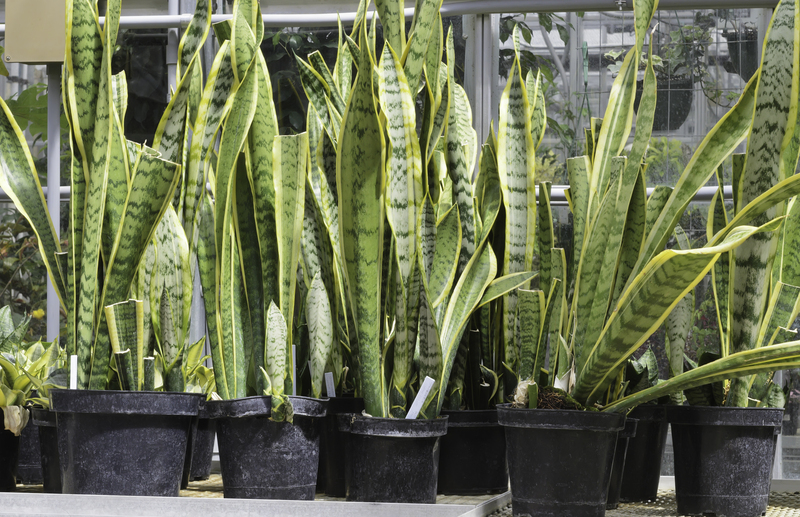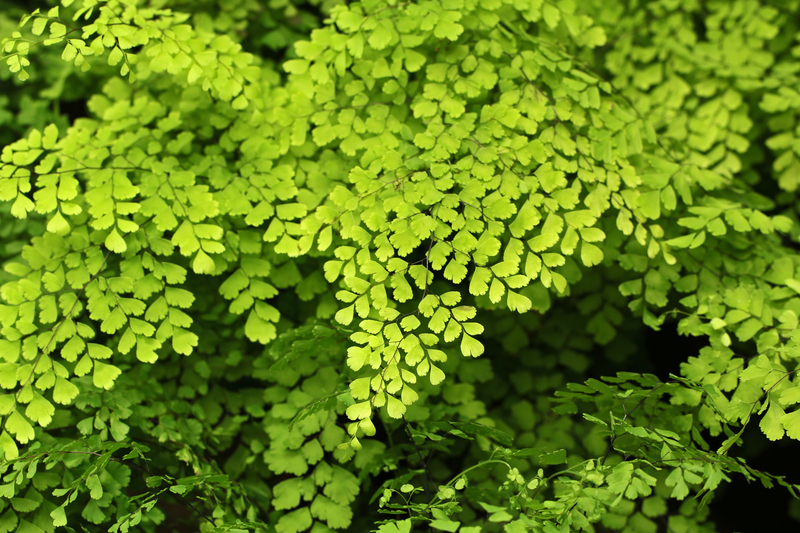Combining Sustainability with Soil Enrichment from Waste
Posted on 30/08/2025
Combining Sustainability with Soil Enrichment from Waste: A Comprehensive Guide
Introduction to Sustainable Soil Enrichment
Sustainability and soil enrichment from waste are two rapidly advancing fields in modern agriculture and environmental management. As the global population continues to grow and arable land becomes increasingly scarce, it is essential to find innovative solutions that not only maintain but improve soil health while reducing the ecological footprint. One of the most promising approaches is the strategic combination of sustainable practices with converting organic waste into valuable soil amendments.
This article explores how combining sustainability with soil enrichment techniques--especially those relying on organic and green waste--can transform agriculture, promote circular economies, and foster environmental stewardship.

The Importance of Sustainable Soil Health
Why Soil Health Matters
Healthy soil is the foundation of food security, biodiversity, water filtration, and carbon sequestration. Unfortunately, intensive conventional farming, overuse of chemical fertilizers, and waste mismanagement have led to widespread soil degradation, nutrient depletion, and pollution.
- Biodiversity Loss: Unsustainable practices strip the soil of beneficial organisms.
- Reduced Fertility: Repetitive cropping without adequate organic replenishment leads to nutrient deficits.
- Climate Change: Degraded soil releases more greenhouse gases and loses its ability to sequester carbon.
Therefore, integrating sustainability and waste-based soil enrichment is critical for current and future generations.
Transforming Waste into Soil Wealth
Types of Waste Suitable for Soil Enrichment
- Organic Household Waste: Kitchen scraps, coffee grounds, eggshells, and more can be composted directly.
- Green Waste: Yard trimmings, grass clippings, and prunings are excellent sources of carbon and nitrogen.
- Food Industry By-products: Fruit pulp, brewery residue, and spent grains are rich in nutrients.
- Agricultural Residues: Crop stubble, husks, and animal manure provide organic matter and minerals.
Not all waste is equal. Avoid using waste containing chemicals, plastic, or diseases, as these may harm the ecosystem or introduce toxins into the food chain.
Composting: The Engine of Soil Enrichment from Waste
Composting is the controlled aerobic decomposition of organic matter. The process converts waste into humus-rich compost that enhances soil structure and fertility. It closes the nutrient loop and prevents organic waste from ending up in landfills, where it would otherwise release methane.
- Traditional Composting: Involves piling up organic waste and letting microorganisms break it down over several months.
- Vermicomposting: Uses earthworms to accelerate decomposition and increase nutrient value.
- Bokashi Fermentation: Anaerobic process particularly suitable for kitchen waste, including dairy and meat.
- In-vessel Composting: Scalable, enclosed systems ideal for urban environments or commercial operations.
Each composting method recycles nutrients and organic carbon, creating a natural fertilizer that supports both sustainable agriculture and environmental sustainability.
Benefits of Sustainable Soil Enrichment Using Waste
Environmental Advantages
- Waste Reduction: Diverting biodegradable waste from landfills minimizes greenhouse gas emissions.
- Improved Soil Structure: Organic matter increases soil's water retention, aeration, and reduces erosion.
- Enhanced Biodiversity: Compost supports beneficial soil microbes and invertebrates.
- Carbon Sequestration: Healthy soils capture atmospheric CO2 and help mitigate climate change.
Economic and Social Benefits
- Reduced Input Costs: Homemade compost lowers dependence on synthetic fertilizers and pesticides.
- Local Economy Support: Community-based compost initiatives create jobs and close regional nutrient loops.
- Increased Yields and Food Security: Balanced soil nutrients lead to higher crop productivity and resilience.
Promotes Circular Economy
Integrating soil enrichment from waste with sustainability principles creates circular systems where outputs become inputs. This approach minimizes resource extraction, waste, pollution and contributes to long-term planetary health.
Implementing Waste-Based Soil Enrichment in Agriculture
On-Farm Composting Strategies
Farmers can turn agricultural and livestock waste into valuable amendments with onsite composting. Key considerations include:
- Feedstock Balance: Mix high-carbon (straw, leaves) and high-nitrogen (manure, green waste) materials for optimal decomposition.
- Moisture Control: Compost requires ~50% moisture. Too wet or dry inhibits decomposition.
- Aeration: Regularly turning compost introduces oxygen, supporting beneficial microbes.
- Temperature Monitoring: Keep compost in the 55-65?C (131-149?F) range to kill pathogens and weeds.
Urban and Community Composting Models
Urban settings often lack space for traditional composting but can utilize:
- Community Compost Hubs: Shared facilities where residents deposit food and yard waste.
- Rooftop and Balcony Composters: Small vermicomposter units fit urban lifestyles.
- Municipal Compost Programs: Cities like San Francisco and Toronto collect organic waste citywide and process it into soil amendments for parks & gardens.
Combining sustainability with soil enrichment in cities not only diverts waste but also fosters urban agriculture and green spaces.
Integrating Compost into Soil Management
To maximize ecological and agronomic benefits, integrate compost in the following manner:
- Top-Dressing: Spread compost over soil surface, especially for lawns, gardens, and pastures.
- Incorporation: Mix compost into the root zone for vegetable beds and crop fields.
- Side-Dressing: Apply around growing plants for season-long nutrition.
Note: Proper compost application rates depend on the crop, soil type, and compost composition. Overapplication may lead to nutrient imbalances or runoff.
Innovative Methods of Soil Enrichment from Waste
Biochar: The Charred Waste Solution
Biochar is a stable, carbon-rich material produced by pyrolyzing organic waste with limited oxygen. When added to soil, it enhances fertility, retains water, and sequesters carbon for hundreds of years. Biochar turns agri-waste into a powerful climate solution.
Digestate from Anaerobic Digestion
Biogas plants process livestock manure, food waste, and green clippings to generate renewable energy and digestate--a nutrient-rich byproduct. Digestate can safely fertilize crops after appropriate treatment, offering a sustainable way to manage farm and municipal waste.
Mulching with Organic Waste
Mulching involves spreading partially decomposed waste like leaves, straw, and grass clippings on topsoil. This practice conserves moisture, suppresses weeds, moderates temperatures, and slowly feeds the soil ecosystem.
Best Practices and Considerations
Managing Risks in Waste-Derived Soil Amendments
- Avoid Contamination: Only use waste sources free from persistent chemicals, heavy metals, and pathogens.
- Meet Local Regulations: Some jurisdictions require minimum composting standards for waste-derived products.
- Monitor Application: Conduct soil tests to match amendment inputs to crop needs, avoiding over-fertilization.
Education and Community Engagement
Widespread adoption of sustainable soil enrichment practices hinges on raising awareness among farmers, gardeners, city dwellers, and policymakers. Initiatives can include:
- Workshops and Training Sessions: Teaching composting, mulch application, and safe waste diversion techniques.
- Public-Private Partnerships: Collaborations to construct compost hubs and develop marketable products from urban or farm waste.
- School Programs: Integrating compost education into science curricula fosters lifelong sustainability habits.
Case Studies: Success Stories in Combining Sustainability with Soil Enrichment
Urban Composting in Milan, Italy
Milan has implemented a food waste collection and composting system serving over a million residents. The city diverts over 90,000 tons of organic waste from landfill annually, using the resulting compost to enrich parks and urban gardens--showing large-scale synergy between sustainability, soil improvement, and waste management.
Biochar Implementation in Ghana
Agricultural communities in Ghana convert crop residues and manure into biochar, regenerating exhausted soils and raising crop yields by up to 50%. This model brings economic, environmental, and food security benefits while leveraging otherwise wasted biomass.
Vermicomposting in California Vineyards
Prestigious vineyards in California transform grape pomace and winery residuals into high-grade worm compost, increasing biological activity in soils and reducing disease. The approach closes the nutrient loop and promotes regenerative agriculture.

The Future of Sustainability and Soil Enrichment from Waste
As the world faces mounting challenges in climate change, resource scarcity, and food security, the fusion of sustainable waste management with soil enrichment is no longer optional--it is essential. The expanded use of compost, biochar, digestate, and innovative mulching techniques will power the next revolution in green agriculture and responsible land stewardship.
Modern technology, scientific research, and community-driven action are making it possible to turn what was once considered waste into the foundation for abundant, fertile, and climate-resilient soils worldwide.
Conclusion: Building a Greener Future Through Sustainable Soil Enrichment
Combining sustainability with soil enrichment from waste is a transformative strategy for regenerating land, closing nutrient cycles, and combating climate change. By harnessing organic waste as a valuable resource, individuals, communities, and industries can share in building a future where healthy soil is abundant, agriculture is resilient, and ecosystems can thrive.
Let us embrace these practices to protect our planet, feed future generations, and ensure that waste becomes a cornerstone of sustainable prosperity.
Key Takeaways
- Waste-derived organic amendments foster soil fertility and biodiversity.
- Composting, biochar, digestate, and mulching are core techniques.
- Integrating sustainability and soil enrichment empowers individuals and communities alike.

